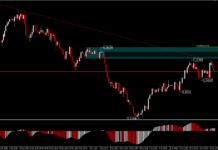Increased year-end volatility took a breather to kick off the first trading week of 2019. But after a streak of market pessimism with the major indices flirting with bear market losses, it would appear that upside surprise risks have prevailed for now.
This welcome turn of events was anchored by the “remarkably strong” jobs report that contradicted the financial markets’ worst fears about the deterioration of the economy that had virtually priced out further Fed rate hikes and even flagged risk of a rate cut by year end.
United States: US data on inflation and the ISM-NMI will be the focus in the week of January 7. However, due to the government shutdown, several of this week’s other releases may be delayed, including trade, factory orders, wholesale trade, construction spending, new home sales, and the advance indicators.
The Highlight is inflation, as that will be one of the prime movers of Fed policy going forward. Also key will be the ISM-NMI for the most up-to-date reading on the service sector. The NFIB small business optimism index is on tap (Tuesday), along with November JOLTS job openings (Tuesday), as well as consumer credit, seen rising $16 bln in November, compared to $25.4 bln in October. MBA mortgage market data arrives (Wednesday). Initial jobless claims (Thursday) are estimated to rise 5k to 236k in the week ended January 5 (Thursday), after climbing 10k to 231k in the week of December 29. The data are likely to be distorted by the government shutdown, along with the typical difficulty in holiday seasonal adjustments. The Treasury budget (Friday) may post a surplus of $5.0 bln in December, relative to a -$204.9 bln deficit in November.
Meanwhile, the rest of the economic calendar will be subject to the government shutdown. November factory orders (originally set for Monday) should post a 0.2% decline, with a flat reading for inventories. The November trade deficit (originally Tuesday) is expected to narrow to -$51.6 bln from -$55.5 bln. Wholesale inventories (originally Thursday) are seen falling 0.2% in November.
Fedspeak: Fed’s Powell will make another appearance this week before the Economic Club of Washington (Thursday), though there will be no text, only a moderated Q&A, no doubt reiterating the “patience and flexibility” formula that helped propel stocks higher Friday. The week rounds out (Thursday) with Richmond’s Barkin, Chicago’s Evans, St. Louis Fed’s Bullard and VC Clarida. The FOMC minutes (Wednesday) will be of interest, as the Fed hiked rates.
Canada: The BoC’s policy announcement (Wednesday) is the highlight this week. No change to the current 1.75% setting is expected for the policy interest rate amid a slowing economy, moderating inflation pressures and the hefty downside risk posed by weak oil prices to real sector growth.
Economic data has the November trade report (Tuesday) expected to reveal a -C$2.0 bln deficit in November from the -C$1.2 bln shortfall in October. Housing Starts (Wednesday) are seen falling to a 205.0k unit pace in December from 216.0k in November. Building Permit Values (Thursday) are projected to slip 0.5% in November after the 0.2% dip in October. The New Housing Price Index (Thursday) is anticipated to decline 0.1% in November (m/m, sa) after the flat readings in August, September and October. The December Ivey PMI is due Monday.
Europe: The ECB’s account of the last policy meeting (Thursday) is likely to reflect growing unease and there will have been broad support for the decision to phase out net asset purchases. The minutes aside, there is also ECBspeak from Villeroy (Thursday) and Mersch (Friday), who are likely to back the central bank’s official line.
The data calendar is busy and should support expectations for slowing economic momentum as global trade tensions and Brexit risks cloud over the outlook. The German November manufacturing orders (Monday) are seen falling -0.2% m/m, while industrial production (Tuesday) is seen rising a modest 0.3% m/m with a solid stock of orders still underpinning activity for now. Export growth is likely to have eased in November, but lower import prices should have helped to underpin the nominal trade balance which we expect to report a sa surplus of EUR 18.0 bln.
So far the labour market continues to improve as companies have a solid stock of orders to fill and an unchanged November unemployment rate is expected (Wednesday) of 8.1%. Improving labour markets and Black Friday sales, meanwhile are expected to have underpinned German and Eurozone retail sales (both Monday), which are seen up 0.4% m/m and 0.2% m/m respectively.
UK: The UK’s data calendar is relatively quiet, highlighted by November production data and monthly GDP data (Friday). The industrial output should recoup 0.2% m/m after dropping 0.6% m/m in October, while the y/y figure should come in at -0.7%. The BRC retail sales report for December will also be released (Thursday), which should affirm a robust holiday sales tally.
Japan: December Consumer Confidence (Tuesday) is seen dipping further to 42.5 from 42.9. The November Current Account surplus (Friday) should narrow to JPY 700 bln from 1,309 bln. December bank loan figures are also due Friday.
The China inflation data headline may show some further easing due to the drop in oil prices. December CPI (Thursday) is penciled in at a 2.0% y/y pace from 2.2% in November and 2.5% in September and October. December PPI (Thursday) is forecast at a 1.7% y/y rate from 2.7%. December loan growth and new Yuan loans are tentatively due Thursday, with the latter seen up CNY 800.0 bln from the prior CNY 1,250.0 bln increase.
Australia: The trade report (Tuesday) is seen revealing a widening in the surplus to A$2.5 bln in November from A$2.3 bln in October. Building approvals (Wednesday) are expected to fall 2.0% in November after the 1.5% decline in October. Retail sales (Friday) are projected to rise 0.2% in November after the 0.3% gain in October.
New Zealand: The next RBNZ meeting is February 13, 2019, in which no change to the current 1.75% setting for the OCR anticipated.
Click here to access the HotForex Economic calendar.
Andria Pichidi
Market Analyst
HotForex
Disclaimer: This material is provided as a general marketing communication for information purposes only and does not constitute an independent investment research. Nothing in this communication contains, or should be considered as containing, an investment advice or an investment recommendation or a solicitation for the purpose of buying or selling of any financial instrument. All information provided is gathered from reputable sources and any information containing an indication of past performance is not a guarantee or reliable indicator of future performance. Users acknowledge that any investment in FX and CFDs products is characterized by a certain degree of uncertainty and that any investment of this nature involves a high level of risk for which the users are solely responsible and liable. We assume no liability for any loss arising from any investment made based on the information provided in this communication. This communication must not be reproduced or further distributed without our prior written permission.



















